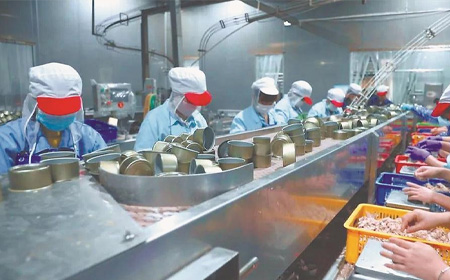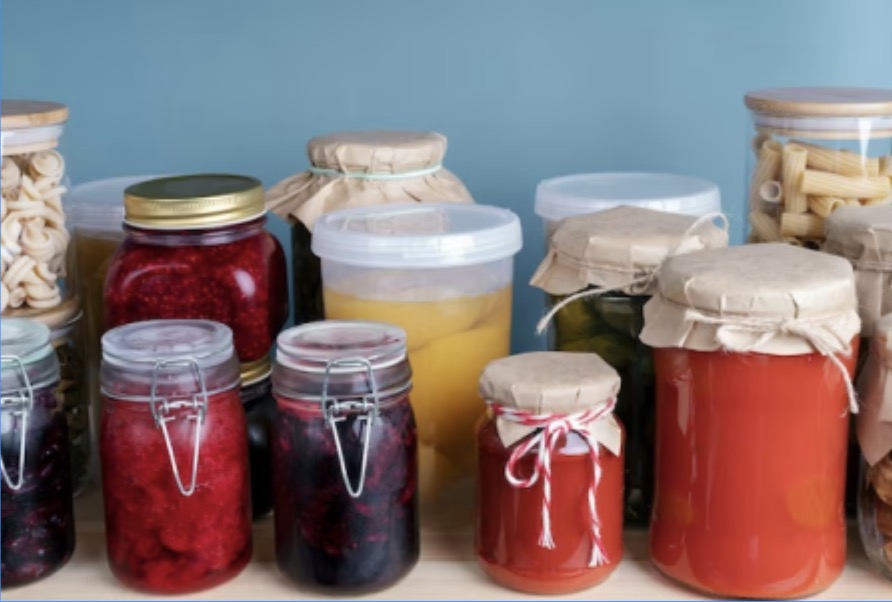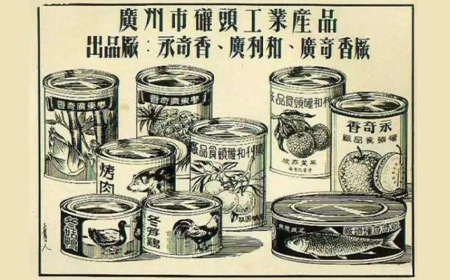1. Historical review of Zhangzhou canned industry
Zhangzhou's canned food industry began more than 60 years ago. It started with a private handicraft workshop-style boiling pot steaming and processing of canned fruits. After the founding of New China, the socialist transformation of public-private partnership was carried out. In 1957, the state-owned Zhangzhou Cannery Factory was established. Because Zhangzhou is located in the subtropical zone, with abundant rainfall, spring-like weather all year round, and abundant flowers and fruits, it was called "Fujian's Ukraine" in the 1950s. Moreover, because Zhangzhou is located on the southeast coast of the motherland, facing Taiwan across the sea, it was the frontier of what was called the "Fujian Frontline" at the time. According to the national economic strategic development positioning at that time, Zhangzhou was not suitable for the development of heavy industry. Therefore, canned food has become a key development industry in Zhangzhou. Until the planned economy era, Zhangzhou Cannery exported canned vegetables from the Soviet Union and Eastern Europe and canned fruits such as lychees, longans, and pineapples to Southeast Asia. In the 1970s, the cultivation, production and processing of canned mushrooms began and exported to Europe and the United States. By the end of the 1970s, the Zhangzhou Cannery Factory had become a large factory with a thousand employees. In 1978, China's reform and opening up brought Zhangzhou's canned food industry into a stage of rapid development. Until 1992, several landmark events occurred in the Zhangzhou canned industry, or it can be said to be the Chinese canned industry: First, the technological transformation and technological progress of the Zhangzhou canned factory. Three representative things: The introduction of resistance welding empty can production lines and chassis automatic punching production lines from Switzerland, Germany, and Italy marked the first step in eliminating solder cans in China's canning industry, and also helped Zhangzhou's canning industry to take the lead in China today. A solid foundation has been laid at the forefront of the canning industry. Second, it is the first to adopt 127.C high temperature short-time sterilization, which not only reduces steam consumption and improves equipment utilization, but also overcomes the problem of undesirable changes in tissue morphology and color of canned mushrooms and asparagus after 121.C sterilization. 127.C high temperature short-time sterilization The technological advancement of sterilization has been widely adopted by the entire industry. The third is to use the technology of "thin tinplate instead of thick" to reduce the cost of empty cans. This is one of the technical magic weapons that makes the processing cost of Zhangzhou can industry lower than that of other regions.In the early 1980s, Zhangzhou also had a number of state-owned enterprises such as Changshan Overseas Chinese Can Factory, Nanjing Can Factory, Nanpu Can Factory, Dongshan Can Factory, Dongshan Commercial Can Factory, and Zhao'an Can Factory. In the late 1980s, township-style export canning processing plants emerged in Zhangzhou. This is the emergence of export processing canning companies represented by Zishan and Xiangguan.
When it comes to canned asparagus in Zhangzhou, the Changshan Overseas Chinese Canned Factory is indispensable. It was this factory that introduced asparagus to Dongshan Island in Zhangzhou. Although the Changshan Overseas Chinese Canned Factory has been closed down for nearly ten years, it is because of his contribution that canned asparagus can be made. It has been continued in Zhangzhou and even Fujian for more than 20 years.
What is worth writing about is that in the late 1980s, when the country and the entire industry were still following the planned economy, the state-owned canning enterprises in Zhangzhou dared to break through the fence of the planned economy, get rid of all kinds of obstructions from the grain and oil import and export companies, and put the market first The road laid the foundation for the comprehensive development of Zhangzhou canned industry in the 1990s.
In 1989, under the impact of the "Chinese canned mushroom enterotoxin incident" in the United States, the booming state-owned canning enterprise in Zhangzhou was hit hard. Zhangzhou's state-owned enterprises have since declined. I remember that the sales price of canned mushroom 2840 fragments reached a high of nearly 9,000 yuan per ton in the 1988-89 production season. The products that were backlogged due to the "enterotoxin incident" only sold for more than 2,000 yuan in 1991. In April 1989, 250g asparagus in strips sold for 19,800 yuan per ton, but in 1990 it could only sell for 9,000 yuan per ton. The entire industry is in dire straits and is in depression.
In the 1990s, especially after Deng Xiaoping's southern tour in 1992, the country's opening up of private economic policies and the recovery of the international canned market made Zhangzhou's canned industry perform a symphony of sorrows and joys, one ebbing and the other rising. On the one hand, state-owned enterprises carry heavy historical burdens and are deeply constrained by the system and are declining step by step; in 1998, the United States imposed anti-dumping duties on Chinese cans, which became the last straw that broke the camel's back for Zhangzhou state-owned canning enterprises; Zhangzhou state-owned canning enterprises The historical stage of complete withdrawal from the industry. On the other hand, the private canning enterprises in township enterprises at that time entered a period of brutal and rapid growth: there were once more than 100 canning factories. Except for a few with light industry export codes, most of them were factories that produced and processed parallel imports for export. In addition to producing In addition to canned mushrooms, canned asparagus, canned lychees and canned bamboo shoots, we have also developed and produced some varieties that are different from traditional varieties. Zhangzhou's canned water chestnuts are produced in factories that process parallel imports for export. In the early 1990s, there were nearly a hundred factories in Zhangzhou that processed, produced and sold export cans, most of which were parallel import factories. At the same time, the sales model of export cans was also undergoing drastic changes: the planned economy model was withdrawn from history, and state-owned enterprises The factory obtains the right to self-operate exports. But private companies still need to find agents from state-owned export companies. The entire 1990s was an era full of changes for the canned industry in Zhangzhou, and it was also an era of "a mixed bag": around 1995, the canneries that had obtained the export light industry code all carried out "shotgun-for-cannon" expansion, and some exported parallel imports were doing well. The cannery factory also invested in building new factories and sought to become a regular company. However, due to the inherent management flaws of private enterprises, they did not overcome the "seven-year itch" problem well. More than ten factories closed down or "changed their flags". A typical example is Xiangcheng District, which ranked among the top three. The closures of Chengcheng Cannery, Longshun Cannery and Huaqing Cannery. More private enterprises are constantly improving their internal management, giving full play to their own advantages and becoming the backbone of Zhangzhou's canned industry today, such as Zishan Group, Lixing Group, Gangchang Food, Pinghe Baofeng, Lvbao Group, etc. It has become a backbone enterprise in the industry after the 1990s. In 1999, the "Three Inspections into One" Zhangzhou Inspection and Quarantine Bureau took a series of measures to prevent the export of "parallel imports" of cans, including the registration of canning processing plants that meet the requirements, and the one-time registration of 17 exporting canned companies, thus ending the production, processing and export of Zhangzhou The history of parallel canning.
Looking back at the development history of Zhangzhou's can industry, we must also review the development process of the empty can manufacturing industry in Zhangzhou area. The development of township canning enterprises in the 1980s gave rise to the empty can manufacturing industry. Due to institutional and business philosophy reasons, the original Zhangzhou Cannery never sold empty cans to the outside world. As township and village enterprises entered the can industry, professional empty can manufacturing factories emerged. After Tuping Can Making (the predecessor of Biaoxin Can Making), private can making factories such as Hecheng, Jialong (the predecessor of Xiangda Can Making), and Jiayi were successively established and entered the development track. In the 1990s, Taiwan Unified Tinplate established a factory in Zhangzhou, marking the completion of the entire industry chain from tinplate manufacturing, tin printing and canning to canning processing. This should be unique in the country. The development of the can industry in Zhangzhou has led to the development of the empty can manufacturing industry. When the can industry in Zhangzhou entered a period of expansion to other provinces, empty can factories subsequently built factories and expanded to other provinces and cities. The development process of Zhangzhou canning industry and Zhangzhou canning industry complementing each other and being closely related is also rare in the industry.
Entering the 21st century, Zhangzhou's canned food industry has entered a period of expansion, which can be summarized as: extension expansion and production capacity expansion. In order to seek the price advantage of raw materials, Zhangzhou enterprises set up factories outside the province. Many factories in other places were successful and became key local enterprises, such as: Jiabao, Hezhou, Guangxi; Zishan, Shandong; Lixing, Shandong;...
2. Current status and problems faced by Zhangzhou canned industry
According to preliminary statistics from the Zhangzhou Canned Food Chamber of Commerce, there are currently 57 canned food export companies in Zhangzhou (excluding factories built outside the province). In 2010, they exported about 400,000 tons of canned goods, with an export delivery value of US$500 million, and their production capacity has reached 600,000 tons. There are more than 100 varieties with a single product export volume exceeding 1,000 tons. Main varieties: the three canned varieties of mushrooms, bamboo shoots and lychees dominate the country.Looking back at the development history of Zhangzhou canned industry, it can be concluded that whenever it encounters development resistance, whether it comes from raw materials and upstream industries, or from the international market, Zhangzhou canned industry always responds calmly through innovation. 127°C sterilization improves the efficiency of the sterilization process, the practical application of tinplate thinning technology increases the cost of iron, and the innovative model of the first trade system for non-local trade bypasses the constraints of the planned economy and gives the industry new vitality, etc. It does not originate from conceptual innovation. It can also be said that technological innovation, business innovation, and concept innovation have created the Zhangzhou canned industry today.
Of course, the changing domestic and international situation is profoundly affecting the normal development of Zhangzhou's canned industry. In addition to the various problems faced by the canned industry across the country, the canned industry in Zhangzhou faces special problems——
(1) The problem of overcapacity
Compared with the export volume of 400,000 tons, the production capacity of 600,000 tons is one-third excess, and new factories are under construction this year. The seriousness of the overcapacity problem can be seen from this year's mushroom production season. In the past two years, through the unremitting coordination of the Zhangzhou Canned Food Chamber of Commerce, the export prices of mushrooms, lychees, and asparagus have basically reached or even exceeded the prices coordinated by the Chamber of Commerce. The export prices have reached a historical high. However, the factory is still in a state of loss or low profit. The main reason is industrial surplus. This year, the export quota of Chinese canned mushrooms controlled by the EU has been emptied for the first time. This shows that the situation of "squeezing from both ends" that has lasted for many years in my country's canned processing and export industry has turned into a situation of "squeezing from one end". Judging from the export price, it should be profitable, but in fact this part of the profit is not owned by the processing and export enterprises, but most of it is transferred to the mushroom farmers.
(2) The problem of shrinking raw material base for pillar varieties
The mainstay of Zhangzhou's canned industry is canned mushrooms, which are shrinking year by year due to irreversible environmental changes. There are three main reasons for the shrinkage of mushroom raw material base in Zhangzhou:
1) The urbanization process of rural areas. Such as the construction of large-scale development zones, road construction, and new rural construction in traditional planting areas;
2) The aging of employees engaged in cultivation in mushroom raw material bases is increasing. The younger generation tends to go out to work and yearn for urban life, leaving no successors for the rural labor force. Even though planting is profitable, the aging of farmers has seriously affected the supply capacity of raw materials;
3) The price of raw materials for growing mushrooms has increased sharply due to the shortage year by year. The cost of raw materials has also increased, and the risk of planting has increased, resulting in low enthusiasm for increasing production.
(3) The problem that the increase in labor wage costs is not directly proportional to the quality of the labor force and the quality of work
Under normal circumstances, the increase in workers' wages should be directly proportional to the quality of the labor force and the quality of work, but the current situation is such that it is often even inversely proportional, which brings serious obstacles to corporate efficiency management, and therefore makes "management produces benefits" an empty talk. Although not all canning companies in Zhangzhou encounter the same situation, it is universal. The quality of employees has begun to affect the normal development of the industry.
How to solve the common problems across the country and the special problems faced by the Zhangzhou canned industry is undoubtedly an important issue that the Zhangzhou industry must seriously think about and innovate in practice.
3. Discussion on the sustainable development of Zhangzhou canned industry
The development history of Zhangzhou's canned industry shows that whenever it experiences twists and turns, Zhangzhou's canned companies will emerge in a new situation to adapt to the needs of industrial development under the objective situation. At present, like the canned industry in other parts of the country, the canned industry in Zhangzhou has encountered the greatest operating pressure in history. Some canned companies have begun to make various attempts to adapt to the new situation. I believe that simple product transformation is not the basis for the sustainable development of the canned industry. If all products are transformed, the canned industry in Zhangzhou will inevitably lead to the hollowing out of the industry. In other words, if canned companies no longer produce cans, there will be no sustainable development.In order to cope with the new situation facing the industry, the current Zhangzhou canned industry has seen the following trends.
1) Strive for government coordination and policy support in the construction of raw material bases;
2) Explore new and effective industry alliances and collaborative operations;
3) Promote automation technology upgrades to cope with rising production costs;
4) Adjust product structure, focus on developing new products to increase product added value, and take the road of product differentiation;
5) Adjust the market structure and explore new markets including the domestic market;
6) Explore a diversified business model with canned food as the main business.
Contact Us
Your email address will not be published. Required fields are marked*





